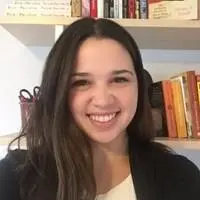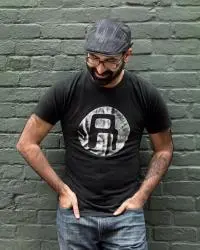Header images via cottonbro & William Mattey
I've written about agents before. I've also heard every thought and opinion on agents out there. That said, the extremely complicated agent discussion can be boiled down to this: landing The Agent can change your life forever. Obviously, if your dream is to self-publish your work whenever you want because you love that absolute control and enjoy taking care of layout, editing, and covers, then you don't have to worry about getting an agent. However, maybe your dreams are different, and that means that you need—and might be actively looking for—an agent.
If that's you, then listen up. There are many articles online about how to put together a query letter, but if your query letter hasn't worked so far, there's probably something you're either missing or doing wrong. As I said before, I've written about agents in the past, but getting the information straight from the source is much better, so I asked five amazing agents about some of the most common mistakes they see in query letters and emails. Get ready to take notes because they had a lot to say. Oh, and I asked each of them for a book recommendation because book people will always talk books.
- Melissa Danaczko, Stuart Krichevsky Literary Agency
 "Query letters are all about striking the right balance. Too little description of the core narrative elements, and it's hard to know what the book is actually about. Too much, my eyes tend to glaze over—and it genuinely bums me out if there are spoilers, because then it's really difficult to read the manuscript with fresh eyes (save spoilers for your synopsis, if it's part of what an agent requests). I think a strong query letter sets the stage for the book's central stakes, so think about how other books give just enough to leave you wanting more."
"Query letters are all about striking the right balance. Too little description of the core narrative elements, and it's hard to know what the book is actually about. Too much, my eyes tend to glaze over—and it genuinely bums me out if there are spoilers, because then it's really difficult to read the manuscript with fresh eyes (save spoilers for your synopsis, if it's part of what an agent requests). I think a strong query letter sets the stage for the book's central stakes, so think about how other books give just enough to leave you wanting more."
One book Melissa wants on your radar: Amanda Jayatissa's My Sweet Girl, coming September 14 from Berkley.
- Alyssa Jenette, Stonesong
"Part of my job as an agent is to make quick assessments and decisions about a book's potential based on what's presented to me in the query, so it follows that the main mistake I see in queries is not giving me the information I need to assess what kind of book I'm getting into. That could mean leaving out something like word count and genre, or failing to present clearly stated stakes. In a query, I want to see 1) a strong, developed arc with established stakes and 2) evidence that the author has a good sense of their place in their chosen genre/demo (typically—but not always—via comps).
 I offer query feedback through an awesome online conference program called Manuscript Academy, which means I'm in a position to speak directly to authors regularly about the choices they made in their queries. Surprisingly often, after I ask for more information, the plot description the author gives doesn't align with the direction of their query. Especially in the course of the YA Fantasy boom, an author may be more focused on establishing a world-building concept than the story's narrative stakes, which makes it very hard for me to understand what actual story the author is trying to tell.
I offer query feedback through an awesome online conference program called Manuscript Academy, which means I'm in a position to speak directly to authors regularly about the choices they made in their queries. Surprisingly often, after I ask for more information, the plot description the author gives doesn't align with the direction of their query. Especially in the course of the YA Fantasy boom, an author may be more focused on establishing a world-building concept than the story's narrative stakes, which makes it very hard for me to understand what actual story the author is trying to tell.
Wanting to write a punchy, captivating query is natural, but form must follow function. Start with the relevant info—who the protagonist is (and who relevant co-stars/villains are), their goal/s, and the obstacle to that goal, and THEN you can punch up the prose with a slick voice, tantalizing world-building, or eye-catching plot details. Mood is compelling in the pages, but not a substitute for substance in a query.
The most common non-query mistake? Messaging me on LinkedIn. ;P"
One book Alyssa wants on your radar: "As far as (very) upcoming books you might be interested in, my wonderful client Lo Patrick wrote a super-immersive, voice-and-character-driven novel set in the sweltering, remote regions of a Georgia swamp that is an ideal book club pick—it's called The Floating Girls and it's coming from Sourcebooks in Summer 2022."
- Lauren Spieller, Triada US Literary Agency
 "A query should accomplish a lot of things—it should tell me the title, genre, and premise of the book, along with a bit of biographical information about the author, and why they are querying me in particular. But at the end of the day, the real purpose of a query is to sell me on the idea of a book so that I’ll request to read more. The best way to do that is to give me the *hook*—the exciting, high concept, “oh that sounds awesome” element(s) of your book that will make me want to know more. Maybe that’s the fact that it’s a unique retelling (like an Ethiopia-set reimagining of Jane Eyre, like we find in Within These Wicked Walls by Lauren Blackwood), or a romp through the Appalachians that follows two young witches from rival families, like in Ash Van Otterloo’s Cattywampus. Whatever your hook, make sure it’s clear in your pitch, because THAT is what will make me request your manuscript."
"A query should accomplish a lot of things—it should tell me the title, genre, and premise of the book, along with a bit of biographical information about the author, and why they are querying me in particular. But at the end of the day, the real purpose of a query is to sell me on the idea of a book so that I’ll request to read more. The best way to do that is to give me the *hook*—the exciting, high concept, “oh that sounds awesome” element(s) of your book that will make me want to know more. Maybe that’s the fact that it’s a unique retelling (like an Ethiopia-set reimagining of Jane Eyre, like we find in Within These Wicked Walls by Lauren Blackwood), or a romp through the Appalachians that follows two young witches from rival families, like in Ash Van Otterloo’s Cattywampus. Whatever your hook, make sure it’s clear in your pitch, because THAT is what will make me request your manuscript."
One book Lauren wants on your radar: She's Too Pretty to Burn by Wendy Heard.
- Serene Hakim, Ayesha Pande Literary
 "I definitely think one of the most common mistakes is not doing your research on the agents you're pitching too. It's an automatic no from me if someone comes to me with a book in a genre I have never mentioned interest in, so make sure you're targeting agents that at least have some hint of interest in your genre. Similarly, not following submission guidelines or querying when an agent is closed to submissions is another mistake. A lot of agencies have particular guidelines because it makes it easier for us to organize the hundreds of queries we get, so when you ignore those guidelines, it makes it a lot harder for us to do our job.
"I definitely think one of the most common mistakes is not doing your research on the agents you're pitching too. It's an automatic no from me if someone comes to me with a book in a genre I have never mentioned interest in, so make sure you're targeting agents that at least have some hint of interest in your genre. Similarly, not following submission guidelines or querying when an agent is closed to submissions is another mistake. A lot of agencies have particular guidelines because it makes it easier for us to organize the hundreds of queries we get, so when you ignore those guidelines, it makes it a lot harder for us to do our job.
Beyond that, some other common query mistakes I see are with the query letter itself. Keep your letter short and to the point and really focus on the book. Anything too long and you'll lose the agent's attention. You also don't want to spend too much time in your letter talking about things other than the book. A brief bio is good, and mentioning why you're interested in that particular agent/agency is also good, but we don't need a ton of side information. Make sure you're also only querying one project at a time. It's fine to mention that you're also working on something else, but you only want to pitch one manuscript at once.
Generally speaking, most authors do a great job at preparing query letters and navigating the often overwhelming process of finding an agent! Most agents are really understanding and won't fault authors for typos and other small mistakes. So just be kind and patient and do your best, and you'll hopefully connect with the right agent for your book in no time!"
One book Serene wants on your radar: Fiona and Jane by Jean Chen Ho, coming January 4th from Viking
- Eric Smith, P.S. Literary Agency
 "I feel like the big mistake I tend to see is when a writer maybe doesn’t actually understand the rules for the category they’re writing in. Which often means there’s something wrong with the book? For example, they pitch a Young Adult novel but the main character is 37. Or they’ve written a Middle Grade book and the word count is absolutely outrageous. Those tend to be pretty big query red flags, and a reason it’s so important to have solid critique partners who are also big readers. To give you the tough love when something just isn’t right."
"I feel like the big mistake I tend to see is when a writer maybe doesn’t actually understand the rules for the category they’re writing in. Which often means there’s something wrong with the book? For example, they pitch a Young Adult novel but the main character is 37. Or they’ve written a Middle Grade book and the word count is absolutely outrageous. Those tend to be pretty big query red flags, and a reason it’s so important to have solid critique partners who are also big readers. To give you the tough love when something just isn’t right."
We then started talking books and Eric recommended a nonfiction book, so he added this:
"Oh! That’s also a query mistake! Writers querying non fiction forget to dish their platform details! Make sure you tell us about where you’ve been writing essays and articles, why you’re an expert and THE person to write this book. It’s important!"
One book Eric wants on your radar: Blind Man's Bluff by James Tate Hill, coming August 3 from W.W. Norton.
Now you know what to do, so go do it. And remember: I get the first galley when your book comes out. Good luck.

About the author
Gabino Iglesias is a writer, journalist, and book reviewer living in Austin, TX. He’s the author of ZERO SAINTS, HUNGRY DARKNESS, and GUTMOUTH. His reviews have appeared in Electric Literature, The Rumpus, 3AM Magazine, Marginalia, The Collagist, Heavy Feather Review, Crimespree, Out of the Gutter, Vol. 1 Brooklyn, HorrorTalk, Verbicide, and many other print and online venues. Y








